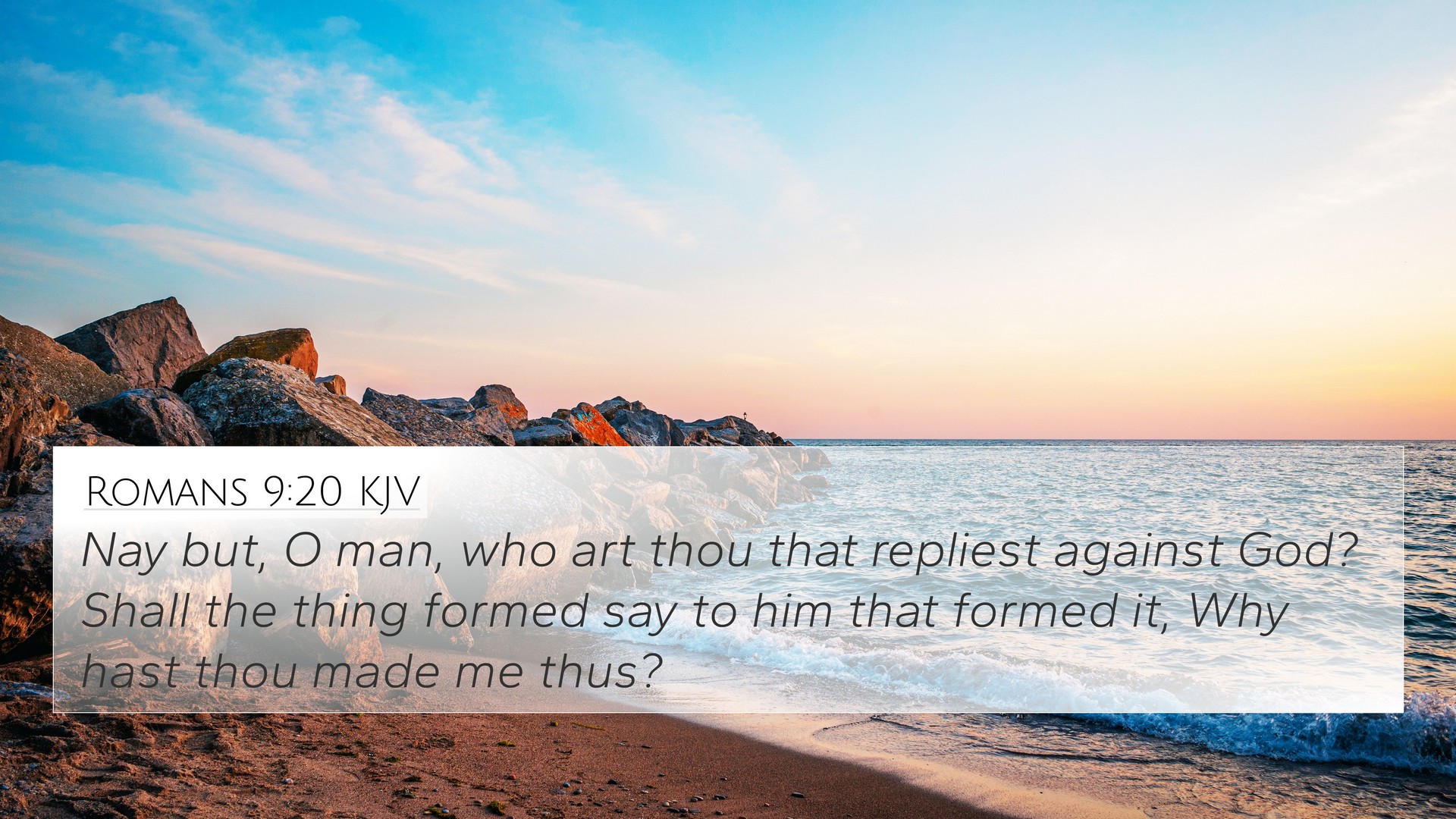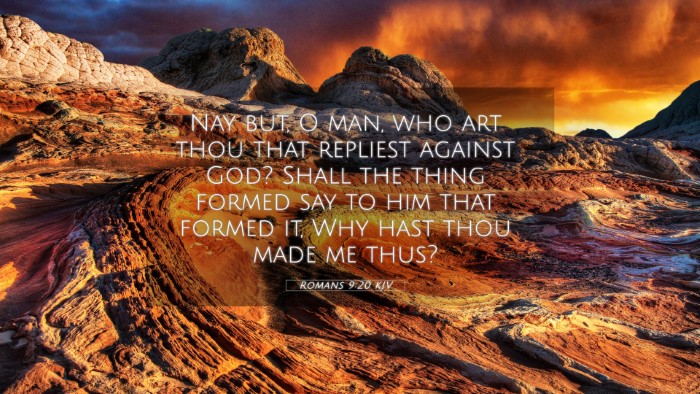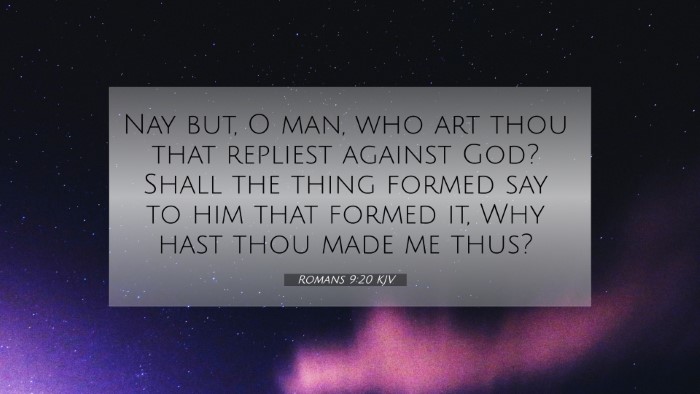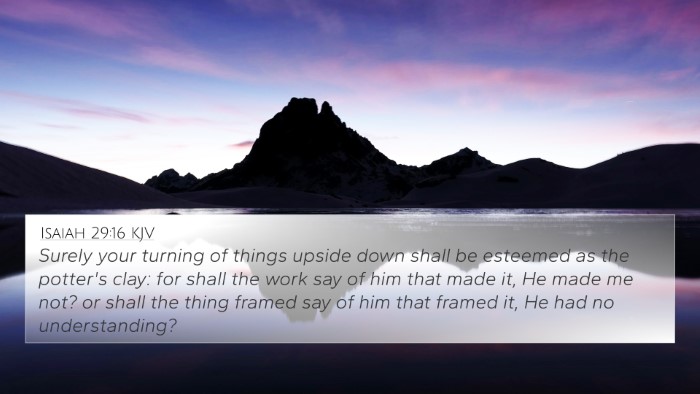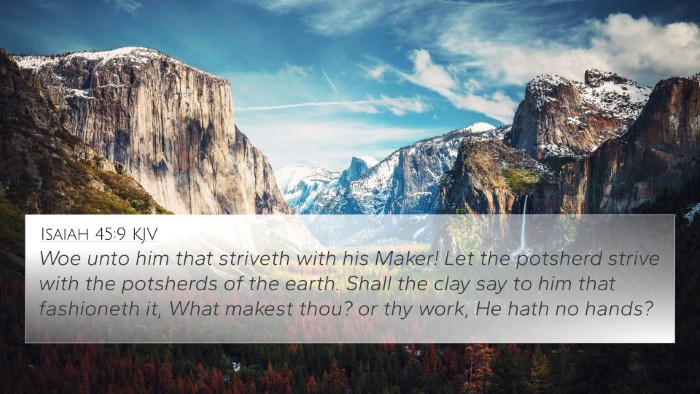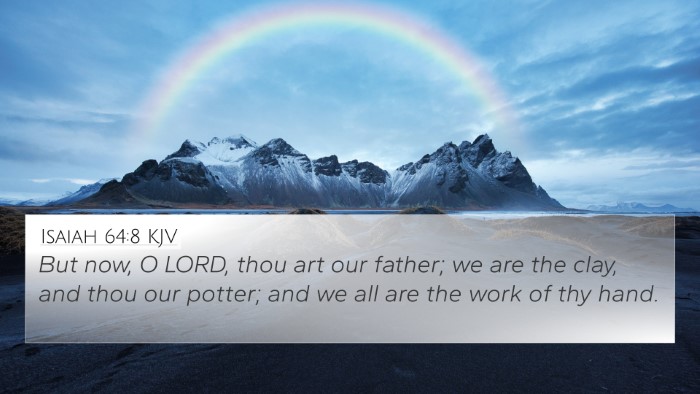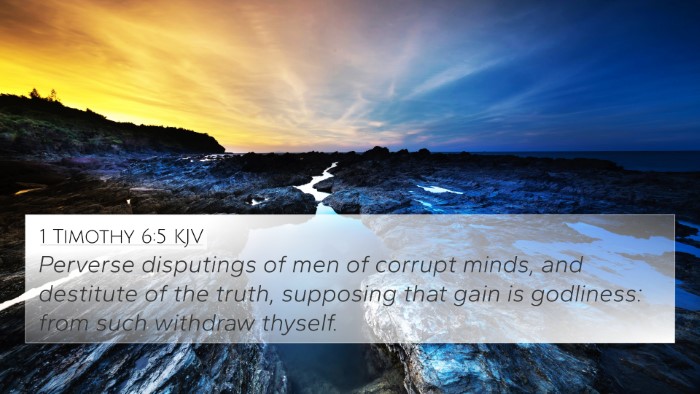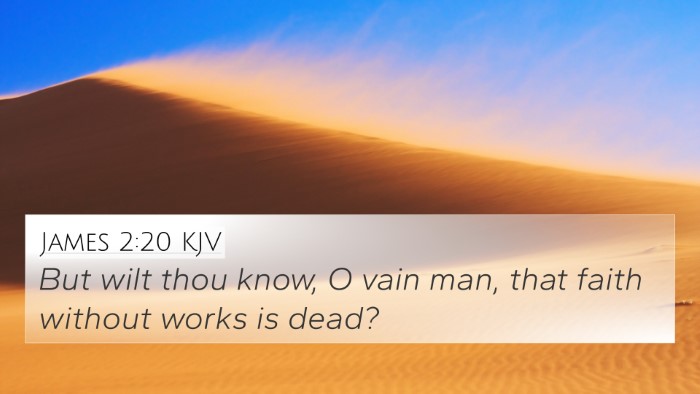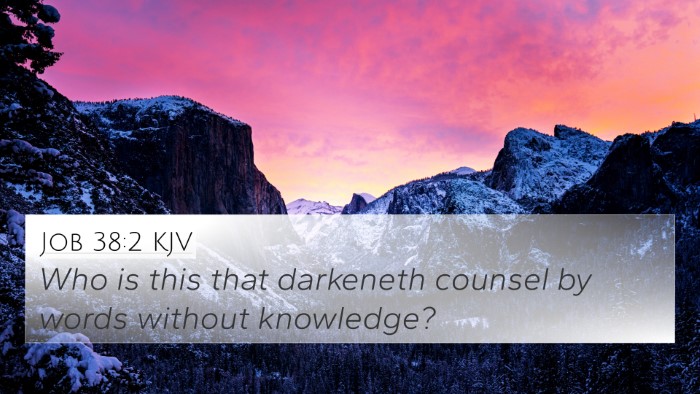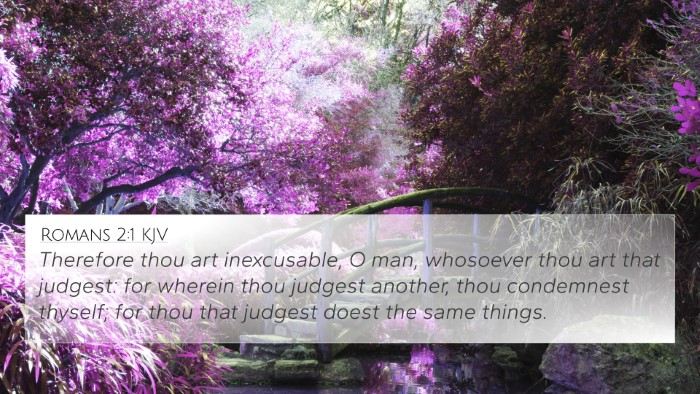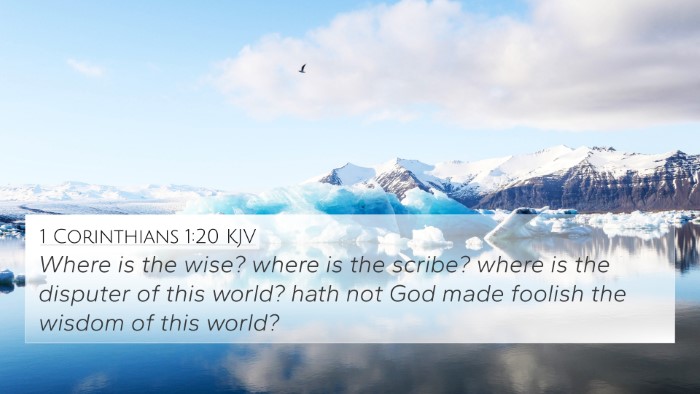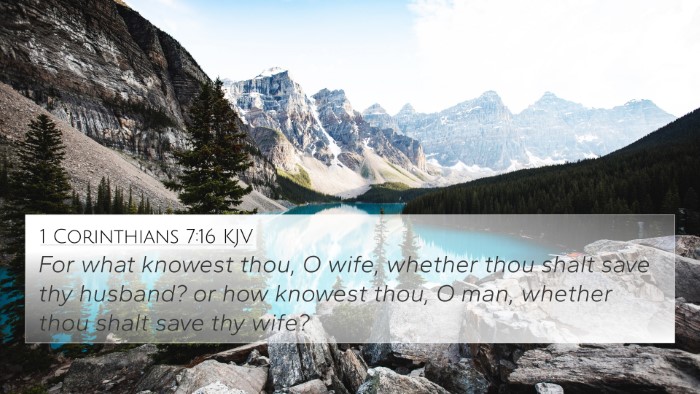Understanding Romans 9:20
Romans 9:20 reads: "But who are you, O man, to answer back to God? Will what is molded say to its molder, 'Why have you made me like this?'" This verse addresses the relationship between humanity and the divine Creator, emphasizing God's sovereignty and the appropriate posture of humanity before Him.
Summary of Insights from Public Domain Commentaries
Matthew Henry's Commentary
Matthew Henry emphasizes the essential truth of God's sovereignty and the foolishness of questioning His will. He points out that God, the potter, has a right over His creation, the clay, which highlights the limitations of human understanding when grappling with divine purposes. Henry indicates that the verse serves as a reminder of humility in acknowledging God's authority.
Albert Barnes' Notes on the Bible
Albert Barnes clarifies that this verse illustrates the absurdity of a created being challenging the intentions of its creator. He posits that every aspect of creation is subject to God’s design, and thus, any complaint against God's decisions is unjustified. Barnes calls attention to the importance of accepting God’s will with faith, even when it is beyond human comprehension.
Adam Clarke's Commentary
Adam Clarke highlights the metaphorical language used in this verse. He articulates that the clay cannot rebut the potter, which signifies the relationship of dependency that humanity has on God. Clarke suggests that this verse invites believers to trust in the divine plan and recognize their role within it, underscoring that God's wisdom surpasses human rationale.
Bible Verse Cross-References
- Isaiah 29:16: "You turn things upside down! Shall the potter be regarded as the clay?" - This verse similarly highlights the absurdity of the created questioning the Creator.
- Jeremiah 18:6: "O house of Israel, can I not do with you as this potter has done?" - This reinforces the theme of God's sovereignty over His people.
- Job 10:8-9: "Your hands fashioned and made me...Will you then turn and destroy me?" - Job expresses the tension between human fragility and God's power.
- Psalms 139:14: "I praise you, for I am fearfully and wonderfully made." - A reminder of our intricately designed nature by God.
- Romans 9:21: "Has the potter no right over the clay?" - Directly follows and reinforces the idea from Romans 9:20.
- 1 Corinthians 4:7: "What do you have that you did not receive?" - Suggests the completeness of God's provision in our lives.
- Exodus 4:11: "Who made man's mouth? Who makes him mute, or deaf, or seeing, or blind?" - A direct reference to God’s control over creation.
Connecting Themes and Insights
The theme of God's sovereignty and human humility resonates throughout Scripture. As seen in Job and Psalms, the understanding of humanity's place in God’s creation is critical to grasping broader theological concepts.
Cross-Referencing Biblical Texts: A Study Guide
Understanding and interpreting Romans 9:20 provides a fertile ground for cross-referencing and thematic connections across the Bible. Here are tools and methods to engage in effective cross-referencing:
- Bible Concordance: Use a concordance to find words related to clay and potter.
- Bible Cross-Reference Guide: Helps in finding interconnected verses that illuminate the meaning of Romans 9:20.
- Cross-Reference Bible Study: Engaging in a study that links similar concepts can deepen understanding.
Concluding Thoughts
In studying Romans 9:20, we understand that the call to humility before God is paramount. This verse exemplifies essential interactions between divine authority and human perspective. The interconnectedness of scripture provides profound insights when exploring themes of creation, purpose, and God's sovereignty. By utilizing tools such as cross-referencing and thematic studies, one can glean a richer understanding of not only this verse but of the entire biblical narrative.
Thematic Bible Verse Connections
The themes found in Romans 9:20 reveal a continuous dialogue within the Scripture concerning the relationship between God and humanity. As believers, recognizing this relationship and the context of our existence in respect to God's plan is crucial. The Biblical texts provide a roadmap illuminating God’s intentions and the human role therein. Understanding this helps us in applying these interpretations in practical faith applications and sermons.
Exploring Biblical Contexts
The verse under consideration invites us to explore varied contexts surrounding it, including the historical and cultural settings that influenced its writing. Engaging deeply with cross-referenced texts establishes a richer tapestry of understanding as to how the message of Romans speaks to issues of identity, purpose, and divine authority.
